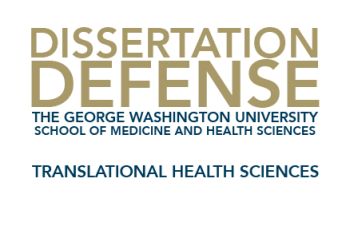
The dissertation defense will be open and held virtually.
TThis event has passed. The written dissertation or abstract is available by clicking the link below.
The PhD in Translational Health Sciences Program is proud to announce the Dissertation Defense of:
PhD Candidate: Kemel A. Ghotme, MD
The NeuroAdvocacy Toolkit: A Knowledge Translation Strategy to Strengthen Food Fortification Policies to Prevent Neural Tube Defects in Latin American Countries. A Mixed-Method Study
Dissertation Committee Chair: Joseph Bocchino, EdD
November 29, 2022, 2:00 - 4:00 pm ET
Thousands of children can be saved from neural tube defects, one of the leading congenital malformations in Latin America and worldwide. They are preventable by implementing public health policies for food fortification with folic acid. However, a lack of knowledge translation strategies partly accounts for the incomplete enactment and scaling-up of mandatory fortification. There is no evidence in the scientific literature about the factors contributing to the development and implementation of knowledge translation strategies to influence policymakers' decisions regarding these evidence-based policies. Through a mixed-methods design, this study describes the factors contributing to the development and implementation of the NeuroAdvocacy Toolkit, a knowledge translation strategy devised to influence policymakers in Latin American countries regarding mandatory food fortification with folic acid for the prevention of neural tube defects. The study comprised three phases: 1) A document analysis led to a needs assessment for regulatory change in Latin American countries and the development of the NeuroAdvocacy Toolkit. 2) A quantitative phase collected survey data regarding the determinant factors for implementing the Toolkit through a validated instrument (the MIDI questionnaire). 3) A qualitative phase gathered interview data about the perspectives of key opinion leaders regarding attitudes toward using the Toolkit and the ideal mechanisms to disseminate it. Integrating quantitative and qualitative data permitted a deeper understanding of overcoming potential barriers and strategically leveraging facilitating factors when disseminating the Toolkit to the target policymakers.